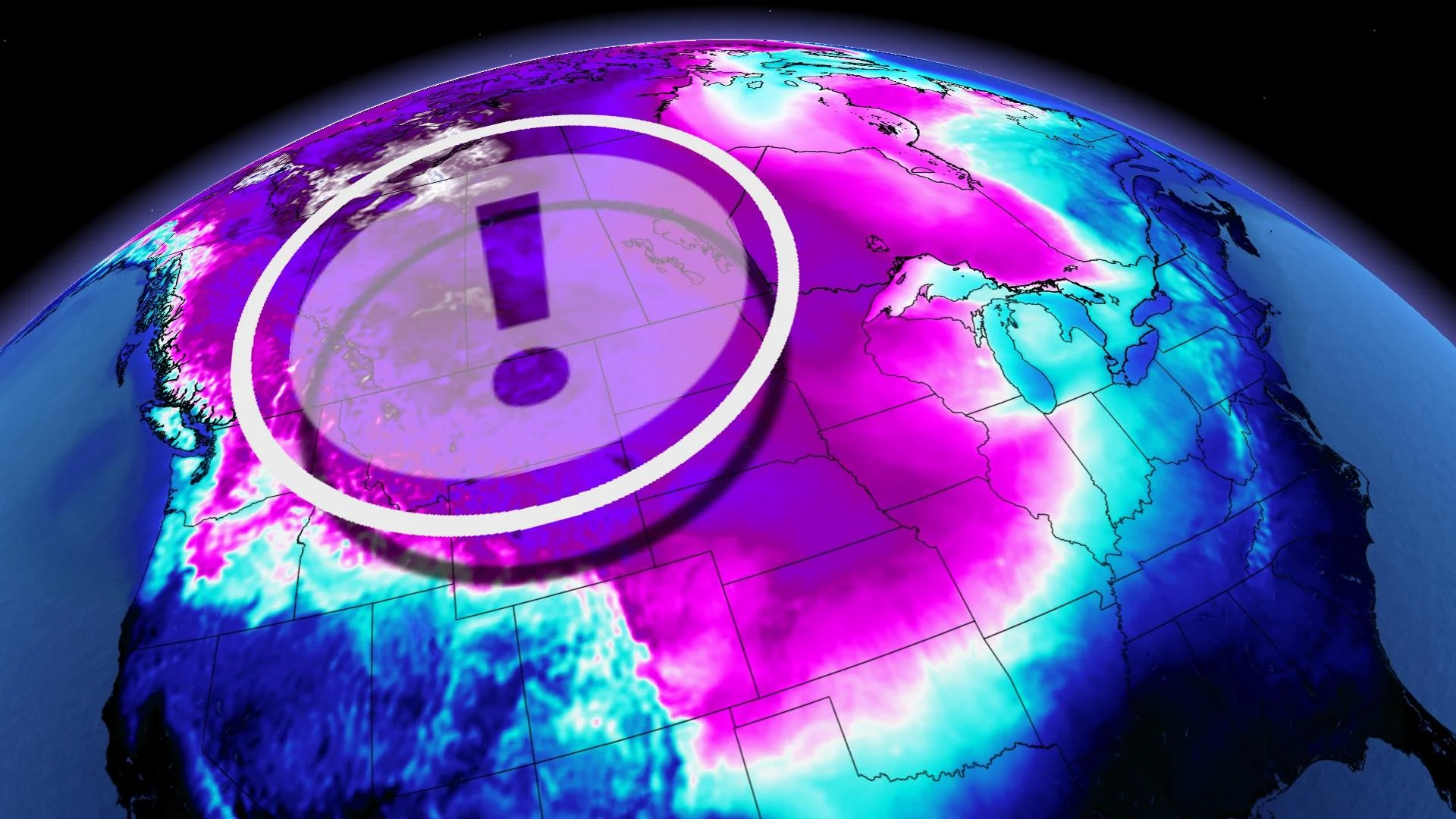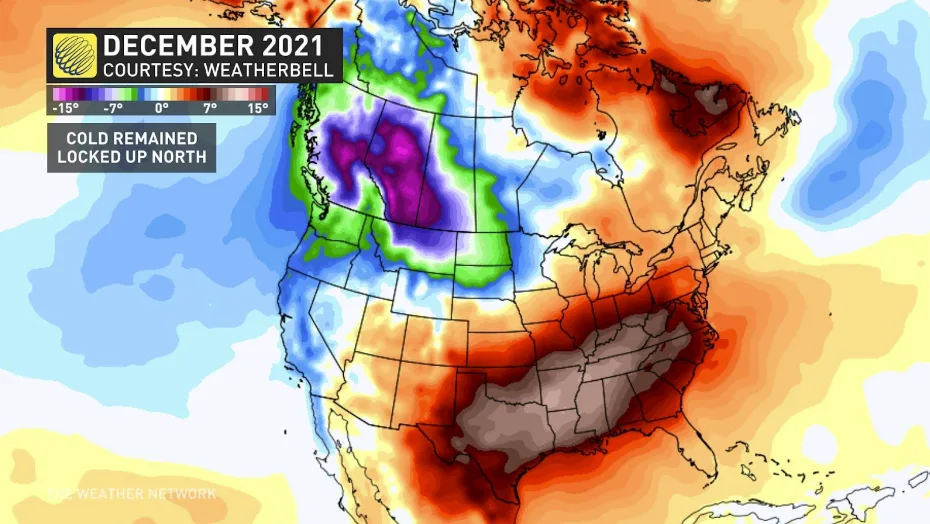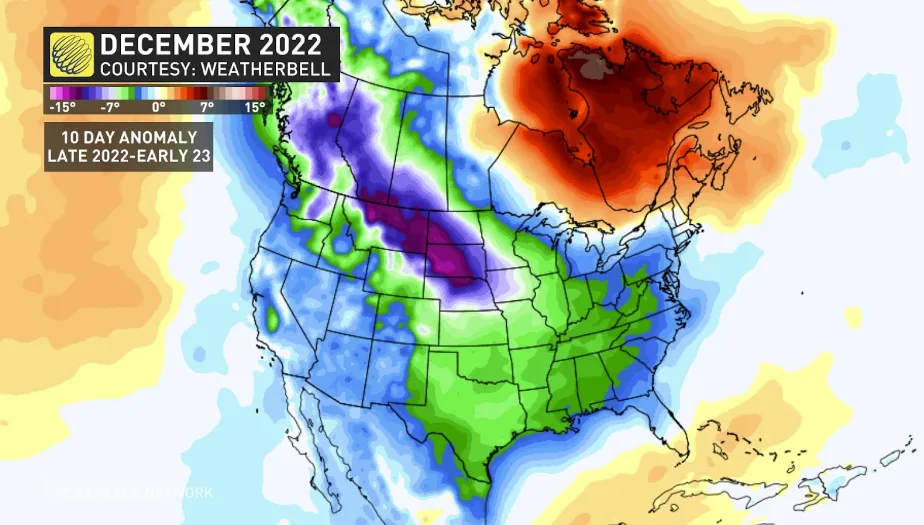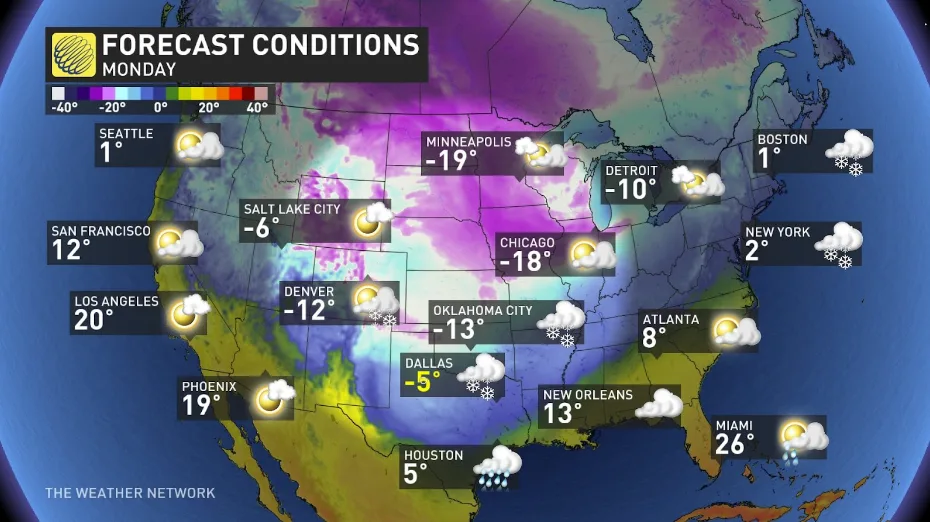
Canadian deep freeze steaming towards Texas: Is it historical?
With a polar vortex swirling over Western Canada and a potent Arctic front moving south, will this be another freezing situation for Texas like we saw in February 2021? Let's discuss.
As a lobe of the polar vortex swirls over Western Canada over the next several days, a potent Arctic front will race southwards across much of the continental U.S. Is it particularly historical, especially compared to the Texas energy crisis of February 2021?
Here’s what you need to know.
Past La Niña winters have delivered robust amounts of cold across western sections of North America.

Take February 2019 for example, a shocking monthly temperature departure of upwards of 15°C across Alberta. The cold didn’t budge much past Kansas. December 2021 also delivered massive amounts of Arctic air across Canada, but it remained locked up over the Pacific Northwest.
RELATED: What is the polar vortex? How it’s responsible for dangerous cold

February 2021 is a different story. Something rare happened. Cross-polar flow is a phenomenon where the coldest polar air in the world follows a continuous track across the North Pole, traversing Canada while tipping into the southern latitudes, such as the Gulf of Mexico.
That’s what happened. The City of Dallas fell to -19°C, the coldest temperature in North Texas in 72 years. Massive power outages sprawled the City of Houston and could be seen from space. Hundreds of people subsequently lost their lives, in similar numbers to the British Columbia heat dome of 2021.

Even though this is the monthly temperature anomaly map, the cold snap only lasted approximately 10 days, highlighting its severe influence on the monthly chart.
How does this impending cold snap compare?
The final week of December 2022 is a good proxy for this upcoming event. Here’s a 10-day temperature anomaly of that cold snap in particular.

DON'T MISS: Where did December go? Canada's winter wonderland turned upside down
Here’s the latest computer model guidance for the next 10 days, generally showing the similar extent of the cold air that was unleashed across the continent last winter.

The jet stream will be unusually wonky, allowing Dallas, Texas to out-chill Iqaluit for a change:












